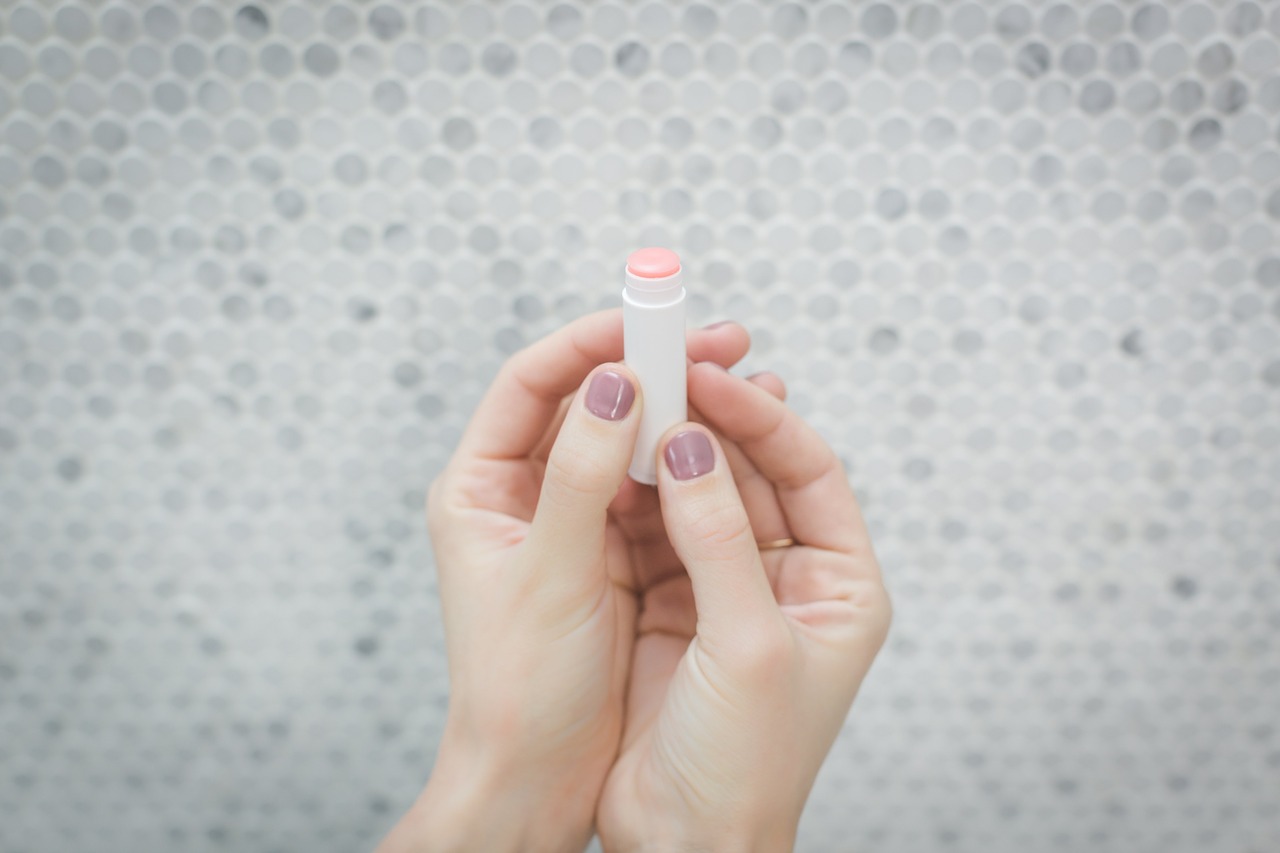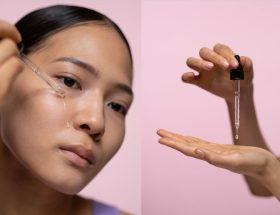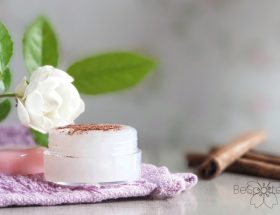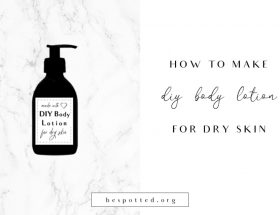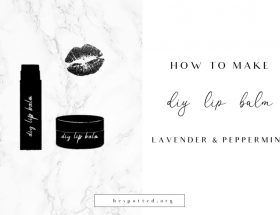This post may contain affiliate links. Any sales made through such links will reward me a small commission – at no extra cost for you!
Skin care is vital to maintain a healthy, glowing complexion, and products you should use vary depending on your skin type, goals and price range. You can tell if your skincare is working based on how it looks and feels throughout the day.
Bu exactly how do you know if your skin care routine is working or is falling short of expectations? Here are five signs you may need to change things.
5 Signs Your Skin Care Is Not Working
1. Your Skin Is Dry
Dry skin is frustrating, and many people change their skin care routine to prevent it. Many things can cause dryness, so you should work to identify the primary causes.
Symptoms of dry skin include tightness, itchiness, rough texture, scaling, peeling and cracking. It can range from a mild nuisance to a severe enough case to risk infection.
You might be susceptible to dry skin if you:
-
- Work where you must wash your hands or put them in water
- Frequently go outside in cold temperatures
- Smoke
- Have a vitamin deficiency
- Live with skin disease
- Have diabetes
- Live with thyroid disease
- Have kidney disease or are undergoing dialysis treatment
- Are undergoing or have undergone cancer treatment
- Suffer from anorexia
- Are HIV-positive
Speak to your dermatologist about your dry skin concerns to see if there are other factors than your skin care. However, it’s probably worth switching up your products to get better results.
Many face products have salicylic acid and other ingredients designed to prevent acne by removing oils from your skin. However, this can lead to excess dryness and red, flaky skin. Consider opting for a moisturizing product instead.
2. You’re Breaking Out
The wrong skin care products can lead to long-lasting breakouts of acne, whiteheads or blackheads that can cause discomfort and impact your self-confidence.
Up to 85% of young adults experience acne. Too dry or oily skin can cause breakouts, and the right ingredients can decrease or worsen your acne. You may be sensitive to different components that can lead to pimples, but you shouldn’t react immediately.
A new skin care routine can lead to skin purging, where your pores empty stored oils and debris. These breakouts are short term, often lasting up to six weeks. Afterward, the skin adjusts to the product and shows results. Persistent breakouts lasting longer than that could signify you need a different item.
If you struggle with frequent breakouts after trying multiple products, it might be time to discuss other possible causes with your doctor. Various things can cause breakouts, including lack of sleep, high stress levels, a poor diet and dehydration. Consider all possible causes before choosing new skin care products.
Certain products can prevent and treat breakouts. Sometimes, switching to washes and lotions designed for sensitive skin helps. Other items include acids that dry the excess oils that cause breakouts. However, you likely won’t need something that’s too drying since excessive dryness will cause your skin to produce more oils, causing breakouts.
3. You’re Allergic to the Products
This sign may sound like a no-brainer, but there are subtle signs you may be allergic to your skin care ingredients. Slight redness or heightened sensitivity could mean you are allergic to something you’re using. More severe symptoms include swelling, rashes and itching. Base ingredients and fragrances can cause these reactions.
More manufacturers realize skin care allergies are common and that they should cater to those with sensitivities. Products labeled pure or clean usually have fewer chemicals, but it’s good to look for items made especially for sensitive skin.
Common skin care-related allergens are emollients, metals, essential oils and sulfates. Other possible allergens include:
-
- Bronopol
- Diazolidinyl urea
- DMDM hydantoin
- Imidazolidinyl urea
- Sodium hydroxymethyl glycinate
- Quaternium-15
- Latex
You can determine what ingredients you are allergic to by having a patch test done, which can cause controlled reactions to different elements of your products. This will narrow your options and help you find your ideal skin care solution.
4. It’s Too Expensive
There are many wonderful skin care products out there, and people often gift them to each other for birthdays, holidays or anniversaries. However, continuing to buy them could be unrealistic, depending on your budget.
Luxury skin care products can easily cost you over $100 a month, which can be difficult to sustain when fulfilling your and your family’s needs. Less expensive offerings may lack the branding or feel but still provide plenty of benefits. If you need to scale back your spending, switching to inexpensive options may be the way to go. Try to choose new products with similar ingredients to ease your skin into the new routine.
Drug stores carry many skin care products, but you can also find inexpensive options at many beauty supplies or grocery stores. Choosing a brand that doesn’t contain harsh chemicals or skin-harming ingredients is vital. CeraVe, Neutrogena, Dove and Eucerin are just some of the dermatologist-approved brands to test next time you need a less expensive product.
5. You Want a Change
Sometimes, you should experiment with your skin care just to see if there are products more suited to your skin. It doesn’t mean something is wrong with your current routine, but with all the options out there, it’s natural to be curious about what might be better. There are various facial washes, toners, lotions and makeup products touting their moisturizing, purifying or plumping benefits that can be hard to resist.
It’s best to gradually start incorporating a new skin care product to avoid any major potential reactions. Research the ingredients ahead of time to ensure there isn’t something you reacted to previously.
One sign you might want a change is not enjoying your skin care routine. Caring for your body isn’t just a necessity — it can also be a relaxing sensory experience. If you don’t feel pampered during your regimen, you can make it more enjoyable with different products.
Trying products with different scents and textures can help you enjoy and stick to your skin care routine. You might not do it as often as you should if you’re bored, leading to oily, dry or acne-prone skin. Avoid that by making a change so you look forward to your routine.
Why Skincare Matters
Your skin is your body’s largest organ, protecting you from outside pathogens that can make you sick. Your skin barrier defends against UV rays, toxins and pollution.
Nurturing your skin protects it from irritation and weakening, which leads to discomfort or exposure to viruses and bacteria. Different products cater to various areas of the skin, from gentle facial cleansers to leg exfoliants and foot creams. Once you find the products that work and feel best for you, you can create a routine that helps your skin thrive all year.
The products you use may also depend on your living conditions.
You need to wear sunscreen year-round, but you might be able to get away with only a lightweight serum as your moisturizer during the summer. On the other hand, if you live in a dry environment, you may need to use more moisturizing products than those in milder climates.
Consult a dermatologist if you’re unsure which products are best for you to use on your skin.
Signs Your Skin Care Is Working
Skin care is an important part of staying clean and healthy. If you want to improve your skin, changing your routine could make a huge difference in how it looks and feels. Try something new and see what works for you.
Written by Cora Gold
Cora is the Editor-in-Chief of women’s lifestyle magazine, Revivalist, where she writes about style, beauty and wellness.










